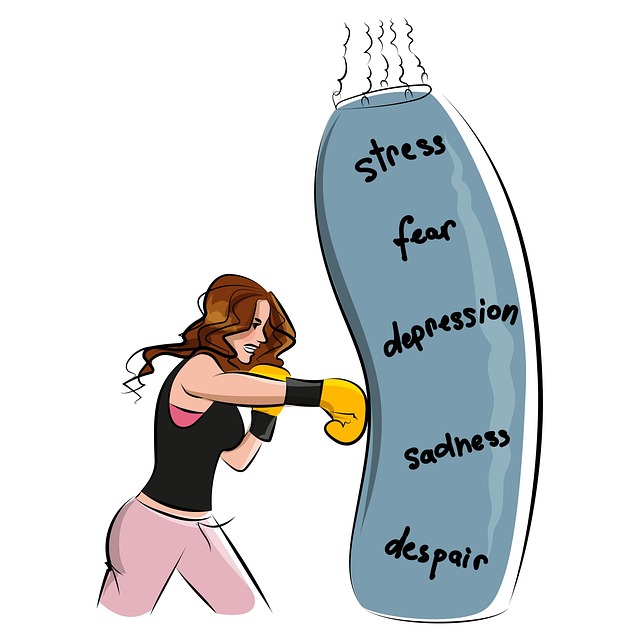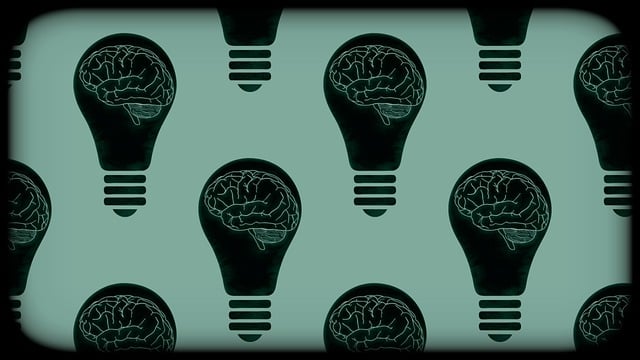Westminster Divorce Therapy leverages the RFM (Recovery, Flexibility, Mastery) framework, integrated with Compassion Cultivation Practices, to enhance mental well-being during and after divorce. This approach focuses on self-awareness exercises, journaling, and communication strategies to improve emotional intelligence and resilience. By identifying challenges and cultivating self-compassion, individuals gain tools for managing stress, anxiety, and intense emotions, fostering adaptability in diverse settings, including healthcare. The RFM model's tailored interventions, combining Mind Over Matter principles, promote emotional well-being, prevent burnout, and nurture a growth mindset, ultimately supporting long-term resilience for navigating life's complexities.
“Resilience is a powerful tool for navigating life’s challenges, and RFM (Resource, Strengths, and Needs) exercises have emerged as an effective method to build it. This article explores the transformative potential of RFM in fostering personal growth and well-being, with a special focus on its synergy with Westminster Divorce Therapy. We’ll delve into how this approach identifies and overcomes obstacles, offering practical applications for enhancing resilience, both short-term and long-lasting.”
- Understanding RFM: A Key Component in Resilience Building
- The Role of Westminster Divorce Therapy in Enhancing Resiliency
- Identifying and Overcoming Challenges Through RFM Exercises
- Practical Applications of RFM in Personal Growth and Well-being
- Cultivating Long-term Resilience: Sustaining the Benefits of RFM
Understanding RFM: A Key Component in Resilience Building

Resilience is a critical component of mental well-being, enabling individuals to navigate life’s challenges with strength and adaptability. Understanding RFM (Recovery, Flexibility, and Mastery), a key framework in resilience building exercises, offers valuable insights into fostering this vital skill. This concept, often explored through Westminster Divorce Therapy and similar practices, focuses on three core dimensions.
First, recovery refers to an individual’s ability to bounce back from setbacks and adversity. Flexibility involves adjusting to change and navigating uncertain situations with adaptability. Lastly, mastery is the sense of control and competence over one’s life. Compassion Cultivation Practices, which are integral parts of many mental health education programs designed for resilience, target these aspects by promoting self-compassion, a critical tool for managing stress and anxiety relief. By integrating these concepts into their lives, individuals can enhance their overall mental health and better cope with the challenges that lie ahead.
The Role of Westminster Divorce Therapy in Enhancing Resiliency

Westminster Divorce Therapy offers a unique approach to enhancing resilience during and after divorce. Through their specialized programs, individuals gain valuable tools to navigate the challenges that come with separating from a partner. The therapy focuses on fostering self-awareness exercises, which encourage clients to understand their emotions and triggers, a critical step in building mental wellness. By exploring these inner workings, individuals can develop effective communication strategies, both for personal growth and future relationships.
In addition, Westminster Divorce Therapy introduces the concept of journaling as a powerful mental wellness journal exercise guidance. This practice allows clients to process their thoughts, reflect on past experiences, and set goals for the future. The structured nature of this therapy empowers individuals to take control of their emotional well-being, ensuring they emerge with greater resilience and self-confidence.
Identifying and Overcoming Challenges Through RFM Exercises

Identifying challenges is a crucial step in personal growth, and RFM (Resilience, Flexibility, and Mastery) exercises provide an effective framework for navigating life’s obstacles. Through structured activities, individuals can uncover their unique strengths and weaknesses, fostering self-awareness and resilience. For instance, Westminster Divorce Therapy offers specialized programs that guide clients through the process of managing intense emotions, improving communication skills, and developing strategies to cope with life changes, all essential components of emotional intelligence.
By regularly engaging in RFM practices, individuals enhance their ability to adapt to stressful situations. This is particularly beneficial in various healthcare settings where providers often encounter diverse patient populations with varying cultural backgrounds and needs. Incorporating Social Skills Training and Healthcare Provider Cultural Competency Training can further empower professionals to offer tailored support, ensuring better patient outcomes.
Practical Applications of RFM in Personal Growth and Well-being

The Resources, Strengths, and Needs (RFM) model offers a practical framework for personal growth and well-being, applicable in various contexts including Westminster Divorce Therapy. By identifying an individual’s resources—the tools and skills they possess—strengths—their unique qualities and abilities—and needs—areas requiring support or development—therapists can tailor interventions effectively. This approach empowers individuals to build resilience, enhancing their ability to navigate life’s challenges with greater ease.
Incorporating Mind Over Matter principles, RFM facilitates the promotion of emotional well-being through targeted exercises. By recognizing and leveraging strengths, individuals learn to cultivate a positive mindset, crucial for burnout prevention. Additionally, identifying resources available to them provides a sense of agency, fostering a growth mindset that encourages the adoption of new techniques for Emotional Well-being Promotion. This holistic approach ensures that each person’s unique journey towards resilience is supported and nurtured.
Cultivating Long-term Resilience: Sustaining the Benefits of RFM

Cultivating Long-term Resilience: Sustaining the Benefits of RFM
Resilience is a key component in maintaining mental health and well-being, especially for individuals navigating challenging life events such as divorce or separation. Westminster Divorce Therapy emphasizes the importance of building resilience through Effective strategies like the RFM model. This approach helps clients develop long-term coping mechanisms that can endure beyond the initial therapy phase. By fostering resilience, individuals gain the tools to navigate future stressors and avoid burnout, a common issue faced by healthcare providers and others in demanding professions.
The benefits of RFM extend beyond divorce recovery. The techniques learned enhance communication strategies, empathy building, and emotional regulation – skills crucial for maintaining healthy relationships and addressing life’s complexities. Through continuous practice and integration into daily routines, the resilience cultivated during therapy becomes a lasting resource, enabling individuals to face challenges with greater equanimity and adaptability. This, in turn, promotes overall mental wellness and enhances their ability to thrive even amidst life’s ups and downs.
Westminster Divorce Therapy offers a unique approach to resilience building through its focus on RFM (Resource, Strengths, and Mastery) exercises. By understanding one’s resources, leveraging strengths, and cultivating mastery over challenges, individuals can enhance their overall well-being and navigate life’s difficulties with greater ease. The practical applications of RFM extend far beyond therapy sessions, fostering long-term resilience that sustains personal growth even after the formal process. This holistic method empowers folks to embrace change, overcome obstacles, and thrive in a dynamic world.











